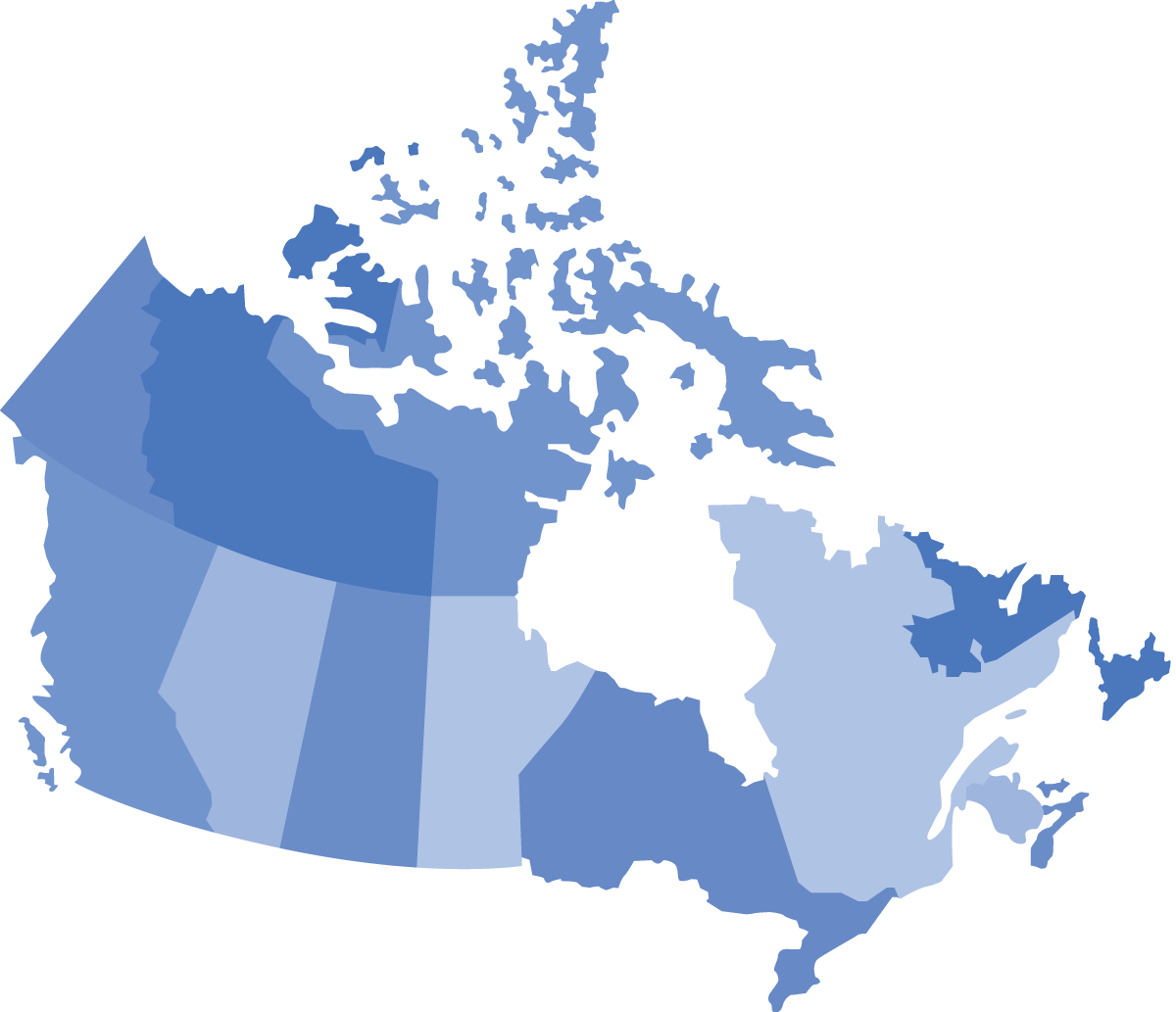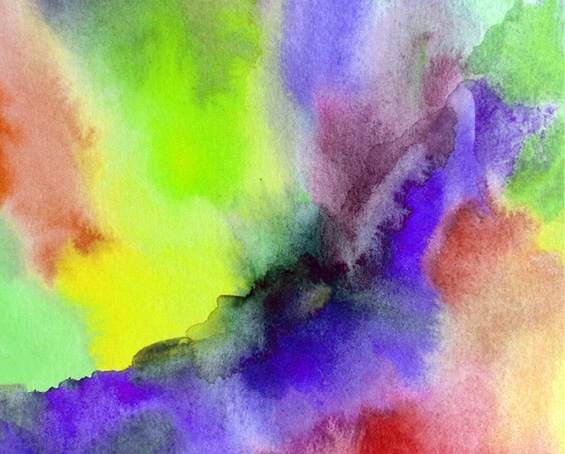-
Understanding Grief ›
-
- Truths about grief
- What grief looks and feels like
- Common challenges with grief
- Grieving before the loss
- Ideas for living with loss
- Grief triggers
- How long grief lasts
- How the loss affects families and others
- When life starts to get better
- Special dates
- Rituals, funerals, and memorials
- Do I need more help?
- Prolonged grief
-
-
Grieving a Death ›
-
Non-death Loss ›
-
Supporting Someone ›
-
Professionals & Volunteers ›
-
Resources & More ›
Grief and people who identify as 2SLGBTQ+
If you identify as 2SLGBTQ+ and are grieving the death of someone you care about, your grief may include other losses. These other losses may be connected to your gender identity and expression or other parts of your identity, such as race, age, and life experiences. When grief is unacknowledged, it can lead to a sense of invisibility and isolation. You may experience a range of thoughts and feelings that can change as time passes.
“I have a lot of really great friends, but they don’t really get it. They don’t understand what it’s like to be trans and grieving another trans person’s death.”
What may affect your grief
Your relationship with the person
- The person who died may have been your spouse, partner, child, sibling, parent, grandparent, friend, or co-worker. Your grief will be affected by the nature of your relationship with this person.
- Because your relationship is unique to you, only you will fully understand the meaning of your loss. Your grief may seem different than someone else’s.
- If the person who died was your spouse or partner, and they did not want the nature of your relationship known, you may have mixed and confusing feelings.
- If you don’t want to disclose the nature of your relationship, you may have difficulty finding ways to talk about your grief. You may or may not find this stressful, and it might add to feelings of isolation.
See also:
- MyGrief.ca Modules 10 to 16 - Relationship Series
The nature of the death
- You may feel traumatized by the way they died, especially if you witnessed the death or found them afterward.
- You may have received too little or too much information, or it may have been given in an insensitive, uncaring, or judgmental way.
How others respond
- You may feel supported and cared for as you grieve, or you may feel alone and isolated if others do not acknowledge your loss.
- If your grief is ignored or discounted, you may experience additional layers of grief that come from being judged or even silenced.
How discrimination and oppression can impact grief
While Canadian attitudes and beliefs about 2SLGBTQ+ communities have become more positive in recent years, oppression and discrimination continue to complicate and deeply impact the experiences of grief in 2SLGBTQ+ communities.
Everyone will experience loss, and the experience of grief is universal. However, other important and unique factors arise within 2SLGBTQ+ communities. The grief that you carry as a 2SLGBTQ+ person may be complicated by discrimination and oppressive beliefs including the following:
- Homophobia
- Biphobia
- Transphobia
These may be interwoven with the following:
- Heterosexism
- Racism
- Ageism
- Ableism
- Misogyny
- Discrimination based on class, religion, or relationship status
- Social location
See also:
- MyGrief.ca Module 22 - Grief in 2SLGBTQ+ communities
Shame and invisibility
You may carry feelings of invisibility or shame from your direct experiences as a 2SLGBTQ+ person or from a shared history with others in your community, whether in Canada or elsewhere. This experience may lead you to disconnect from or deny your grief.
Trauma
As a 2SLGBTQ+ person, you may have previous traumatic experiences. A death may trigger or bring to the surface thoughts and feelings related to past trauma.
See also:
- MyGrief.ca Module 25 - Grief after trauma
- Know that loss is something universal. Life has changed, and it is okay not to feel like yourself or to be overwhelmed with feelings and thoughts.
- Even if others do not acknowledge your relationship, know that it matters, and consider things you can do to acknowledge it.
- Take care or notice of your physical health by monitoring your eating and drinking, sleeping, personal hygiene, and physical exercise. Look for any increase in alcohol or drug use or for restlessness while sleeping.
- Take notice of emotions, expressions of feeling, and hyper-alertness. If you are concerned, consult your physician.
- Things like crying or feeling lost, numb, or angry are all expected as you navigate loss. But take notice if you lose all contact with supports or daily routines.
- The impact of your grief will be integrated into your life and the intensity will lessen in time. People do not “get over” loss, but you can move through it in time. Understanding this can be an important first step in finding ways to live with your experiences.
- Take support when offered, and let people know when their support is not helpful.
- Consider journaling, or find other ways to express your grief.
- Find ways to acknowledge the loss, or create new routines.
- Consider looking for 2SLGBTQ+ services that can provide a safe environment. You may prefer to use a hotline service, which allows you to remain anonymous.
- You may find it helpful to connect with a professional counsellor who has experience with grief, trauma, and 2SLGBTQ+ communities.
- You may not feel like reaching out, but if you can, look for a 2SLGBTQ+ grief support group in your area or online; being with others who are experiencing something similar can help you to feel less isolated.
- It may also be helpful to reach out to trusted friends, family, healthcare providers, or faith leaders who know you well and can support you.
- Most importantly, acknowledge the loss, and know that everyone grieves differently.
- Ask about and listen carefully to the ways the person wants to be supported.
- Provide emotional support by spending time and listening with compassion, patience, and nonjudgment.
- If you can provide practical support, offer and get permission to do something specific, for example, yardwork, grocery shopping, pet care, driving, meals.
- Be there for the long run.
See also:
If you feel overwhelmed or “stuck” please talk to a health professional or trusted leader in your community such as a doctor, chaplain, nurse practitioner, social worker or school administrator. These trusted people may be able to connect you with appropriate programs, resources, and other forms of needed support such as grief counselling or medical care. You may be able to access counselling services if you have an Extended Health Plan, or through an employee assistance program. It will be important that they have experience in grief counselling. If you have thoughts of or plans to harm yourself or others, go to your nearest Emergency Department, call your local Crisis Line, or call or text 9-8-8 if you are in Canada. It is essential that you reach out for help.
See also:
- Do I need more help?
- MyGrief.ca Module 8 - Do I need more help and where to find it
Grief in 2SLGBTQ+ communities is often layered with other losses, and sometimes trauma. Grief may be compounded by past and ongoing discrimination and by oppression. If you feel your loss is invalidated and dismissed by others, your grieving may be impacted. Losses can build up over time, leading to increased feelings of isolation, distrust, or fear. Reach out to trusted friends, family, and community resources for support. Feeling supported can be important in helping you live with and make sense of your grief.
See also:
- MyGrief.ca Module 22 - Grief in 2SLGBTQ+ communities
Video Gallery
Resources
Talks about the disenfranchised losses that accompany coming out and coping with this grief.
Talks about grieving death losses alongside non-death losses and disenfranchised grief, supporting with love, and grief and pride.
Talks about disenfranchised grief, compounded grief, collective grief, and barriers to bereavement support for those in the LGBTQ+ community.
Talks about the disenfranchised losses that accompany coming out and coping with this grief.
Talks about grieving death losses alongside non-death losses and disenfranchised grief, supporting with love, and grief and pride.
Talks about disenfranchised grief, compounded grief, collective grief, and barriers to bereavement support for those in the LGBTQ+ community.


